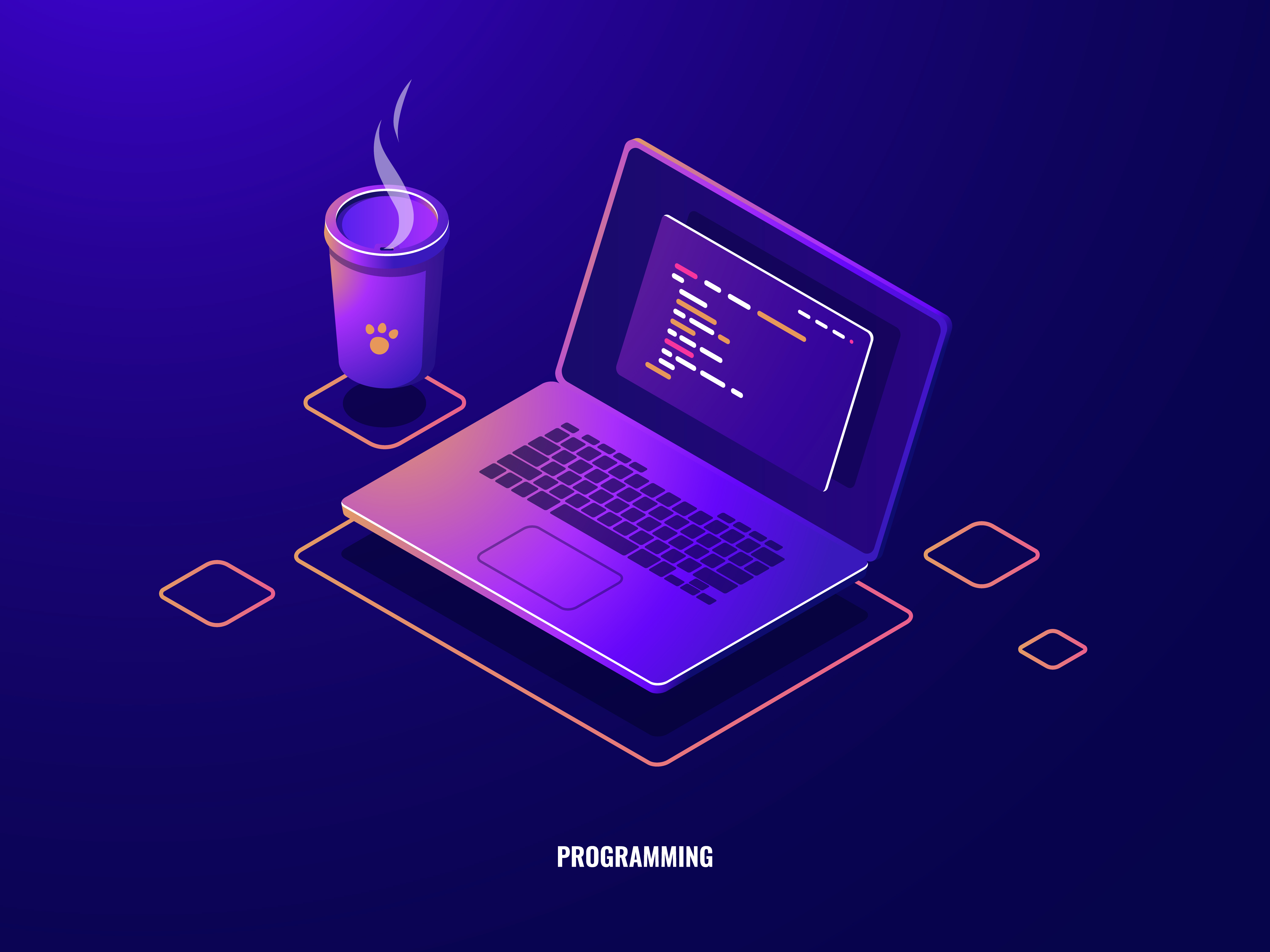Whether you’re a beginner or an experienced coder, this comprehensive guide will ignite your passion for Python and empower you to create amazing things. So, let’s embark on an exciting journey into the world of programming with a python internship by Spectrics Solutions.
Why Learn Python?
Python is a popular programming language with many benefits that make it a great choice for beginners and experienced programmers alike. So, here are some reasons to learn Python:
Readability
Python has a clean and easy-to-understand syntax, which makes it readable and reduces the time required for debugging and maintaining code. In addition, this feature is particularly helpful for beginners.
Versatility
Python is a versatile language that can be used for a wide range of applications, including web development, data analysis, scientific computing, artificial intelligence, machine learning, and automation. In addition, it has a vast ecosystem of libraries and frameworks that make development tasks easier and faster.
Beginner-Friendly
Python’s simplicity and readability make it an excellent language for beginners. In addition, it has a gentle learning curve, allowing newcomers to focus on core python programming concepts rather than getting overwhelmed by complex syntax.
Large Community and Resources
Python has a vast community of developers who actively contribute to its growth. This means you can find abundant resources, tutorials, documentation, and support python online. The community also fosters collaboration and knowledge sharing.
Career Opportunities
Python is in high demand in various industries, such as technology, finance, healthcare, and data science. Likewise, learning Python can open up job opportunities and provide a strong foundation for building a career in programming.
Step-by-Step Guide To Learning The Fundamentals Of Programming
- Choose a Programming Language
Start by selecting a programming language to focus on. Likewise, the popular choices for beginners include Python, JavaScript, and Java. Moreover, each language has its syntax and features, so pick one that suits your goals and interests.
- Set up Your Development Environment
Install the necessary software and tools required to write, run, and debug programs in your chosen language. Likewise, many languages have integrated development environments (IDEs) that provide a user-friendly coding environment. Alternatively, you can use a simple text editor and a command-line interface.
- Understand Basic Concepts
Familiarize yourself with the fundamental concepts of python programming, such as the variable, data type, control structure (if-else statements, loops), and python function. These concepts form the building blocks of any programming language.
- Learn the Syntax
Study the syntax rules of your chosen python programming online language. Likewise, Syntax refers to the specific rules and structures used to write code in that language. Understanding the syntax is crucial for writing correct and readable programs.
- Practice with Simple Programs
Start writing simple programs to apply what you’ve learned. Similarly, begin with basic exercises like printing messages, performing arithmetic operations, or creating simple loops. This hands-on practice will help you solidify your understanding and improve your problem-solving skills.
- Dive into Data Structures
Learn about fundamental data structures like arrays, lists, and dictionaries. Understanding data structures is essential for organizing and manipulating data effectively within your programs.
- Get Familiar with Algorithms
Study common algorithms and their implementations. Likewise, algorithms are step-by-step procedures used to solve specific problems. Likewise, learning about algorithms will enhance your ability to solve complex programming challenges.
- Read and Write Code
Explore existing code written by experienced programmers. Then, read through open-source projects, tutorials, and programming books. Now, it’s time to attempt to understand the code logic and structure, and practice writing your programs based on what you’ve learned.
- Debugging and Problem-Solving
Learn how to debug your programs by identifying and fixing errors. Debugging is a crucial skill for programmers. Additionally, develop problem-solving techniques to break down complex tasks into smaller, manageable parts.
- Practice, Practice, Practice
Consistent practice is key to mastering python programming online. Challenge yourself with coding exercises, projects, and coding competitions. So, the more you practice, the more confident and proficient you’ll become.
Start Coding in No Time
- Choose a Programming Language:
– Decide which programming language you want to learn based on your goals and interests.
– Popular languages for beginners include Python, JavaScript, and Ruby.
- Set up Your Environment:
– Install the necessary software and tools to write, run, and test your code.
– Choose a code editor or integrated development environment (IDE) that you’re comfortable with.
- Learn the Basics:
– Start with the fundamentals of programming, including variables, data types, loops, and the python function.
– Work through tutorials and exercises to practice writing and debugging code.
- Build Simple Projects:
– Apply what you’ve learned by building small projects, such as a calculator or a simple game.
– Use online resources and forums to get help and feedback on your code.
- Practice Consistently:
– Make coding a regular habit to reinforce your skills and knowledge.
– Challenge yourself with increasingly complex projects as you improve.
Remember, the key to becoming a successful coder is to be persistent and continually learn and improve your skills with a perfect python internship.
Getting a Job in Python Development
Python is a versatile and in-demand programming language, which makes it a valuable skill in the job market. Here are some points to consider when looking to land a job in Python development:
Master Python Fundamentals
Start by building a strong foundation in Python programming. Understand the core concepts, syntax, and data structures. Practice writing clean and efficient code, and become comfortable with common libraries and frameworks.
Build a portfolio
Create a portfolio of projects that showcase your Python skills. Moreover, develop real-world applications or contribute to open-source projects. In addition, having a portfolio demonstrates your practical experience and allows potential employers to assess your capabilities.
Explore Python Frameworks and Libraries
Python has a vast ecosystem of frameworks and libraries for various domains, such as web development (Django, Flask), data analysis (NumPy, Pandas), machine learning (sci-kit-learn, TensorFlow), and more. Familiarize yourself with these tools and gain hands-on experience with them.
Contribute to Open-Source Projects
Participating in open-source projects not only allows you to collaborate with other developers but also demonstrates your ability to work in a team and contribute to a larger codebase. It showcases your commitment to learning and your passion for Python development.
Stay Updated with Trends and Advancements
Python is an evolving language, and staying up to date with the latest trends, libraries, and best practices is crucial. Likewise, follow relevant blogs, attend conferences, join Python online communities, and participate in coding challenges to enhance your knowledge and demonstrate your enthusiasm for Python.
Networking
Networking plays a significant role in finding job opportunities. So, engage with the Python community through online forums, social media groups, and local meetups. Then, connect with professionals in the field, attend events, and seek mentorship or guidance. Networking can lead to valuable connections and potential job referrals.
Create a Polished Resume and Online Presence
Craft a well-structured resume that highlights your Python skills, projects, and relevant experience. Moreover, tailor it to each job application, emphasizing the qualifications that align with the specific role. Additionally, maintain an updated LinkedIn profile and consider creating a personal website or blog to showcase your work and expertise.
Prepare for Interviews
Be prepared for technical interviews that assess your Python knowledge and problem-solving abilities. Likewise, practice coding exercises and be ready to explain your projects and problem-solving approaches. Lastly, research common interview questions for Python developers and prepare thoughtful answers.







